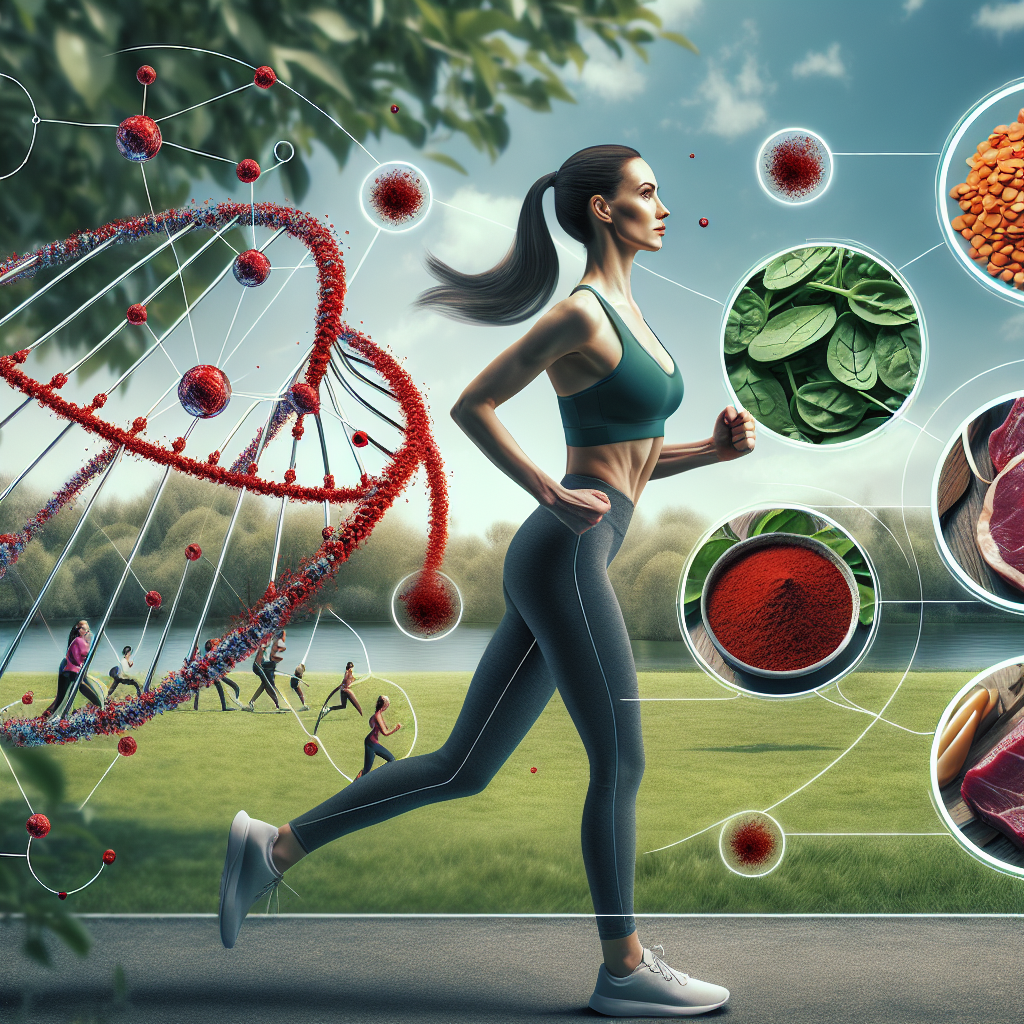
Understanding the Role of Iron in Women’s Health
Iron is an essential mineral that plays a pivotal role in the health and well-being of women. Research indicates that iron is crucial for oxygen transport in the blood, which supports energy levels and overall vitality (1). This article delves into the significance of iron for women, exploring its functions, the consequences of deficiency, and the best dietary sources to ensure adequate intake.
The Importance of Iron for Women
Women have unique physiological needs that make iron particularly important. Studies show that women require more iron due to menstruation, pregnancy, and breastfeeding, which can lead to increased risk of deficiency (2). Iron is integral to the formation of hemoglobin, a protein in red blood cells that carries oxygen from the lungs to the rest of the body. Research suggests that adequate iron levels are associated with improved energy, cognitive function, and immune system strength (3).
Iron Deficiency and Its Impact on Women
Iron deficiency is a common issue among women, with research indicating that it can lead to anemia, characterized by fatigue, weakness, and decreased immune function (4). Studies have shown that iron deficiency anemia affects a significant portion of women worldwide, particularly during their reproductive years (5). Moreover, iron deficiency can impact cognitive abilities and overall quality of life, making it a critical health concern (6).
Dietary Sources of Iron
Ensuring adequate iron intake is essential for maintaining optimal health. Research suggests that dietary iron comes in two forms: heme iron, found in animal products, and non-heme iron, found in plant-based foods (7). Heme iron is more readily absorbed by the body, but a balanced diet that includes both types can help meet iron needs. Foods rich in heme iron include red meat, poultry, and seafood, while non-heme iron sources include lentils, spinach, and fortified cereals (8).
Enhancing Iron Absorption
Maximizing iron absorption is crucial for preventing deficiency. Studies indicate that consuming vitamin C-rich foods alongside iron sources can enhance absorption, particularly for non-heme iron (9). For example, pairing a spinach salad with bell peppers or a glass of orange juice can significantly improve iron uptake. Additionally, research suggests avoiding tea and coffee during meals, as they contain compounds that can inhibit iron absorption (10).
Iron Supplementation: When and Why
In some cases, dietary intake may not be sufficient to meet iron needs, leading to the consideration of supplementation. Research shows that iron supplements are recommended for women at risk of deficiency, such as those with heavy menstrual bleeding, pregnant women, or those following a vegetarian or vegan diet (11). However, it’s important to consult with a healthcare provider before starting any supplement regimen, as excessive iron can have adverse effects (12).
Iron and Pregnancy
Pregnancy places increased demands on a woman’s iron stores due to the needs of the developing fetus and increased blood volume. Studies indicate that iron deficiency during pregnancy can lead to preterm birth, low birth weight, and developmental delays in the child (13). Therefore, maintaining adequate iron levels through diet and, if necessary, supplementation is crucial for maternal and fetal health (14).
Iron and Menstrual Health
Menstruation can significantly impact a woman’s iron levels, particularly in cases of heavy bleeding. Research suggests that women with heavy menstrual bleeding are at a higher risk of developing iron deficiency anemia (15). Monitoring menstrual health and considering iron supplementation under medical guidance can help manage this risk and maintain overall health (16).
Iron and Athletic Performance
For women engaged in regular physical activity, iron plays a vital role in maintaining optimal performance. Studies show that iron deficiency can lead to reduced endurance, increased fatigue, and decreased athletic performance (17). Athletes, especially those involved in endurance sports, should pay close attention to their iron intake and consider supplementation if necessary (18).
Monitoring Iron Levels
Regular monitoring of iron levels is essential for maintaining health. Research suggests that blood tests, such as serum ferritin and hemoglobin levels, can provide valuable insights into iron status (19). Women should discuss these tests with their healthcare providers, particularly if they experience symptoms of deficiency or have risk factors (20).
Takeaways
- Iron is crucial for women’s health, supporting oxygen transport, energy levels, and overall vitality.
- Iron deficiency can lead to anemia, impacting energy, cognitive function, and immune health.
- A balanced diet including heme and non-heme iron sources, along with strategies to enhance absorption, is essential for maintaining adequate iron levels.
- Supplementation may be necessary for women at risk of deficiency, such as during pregnancy or with heavy menstrual bleeding.
- Regular monitoring of iron levels through blood tests can help prevent and manage deficiency.
Understanding the importance of iron and taking proactive steps to maintain adequate levels can significantly enhance women’s health and well-being. By prioritizing iron intake and absorption, women can support their energy, vitality, and overall quality of life.
SOURCES
Source 7
Source 8
Source 12
Source 14
Source 17
Source 18
Are you looking for articles on men’s health, wealth, and lifestyle?
We’re talking real, actionable advice that cuts through the noise. Whether it’s getting jacked, stacking cash, or leveling up your life. No fluff, just the good stuff to help you dominate in every area. We’re here to help you build the life you actually want.
